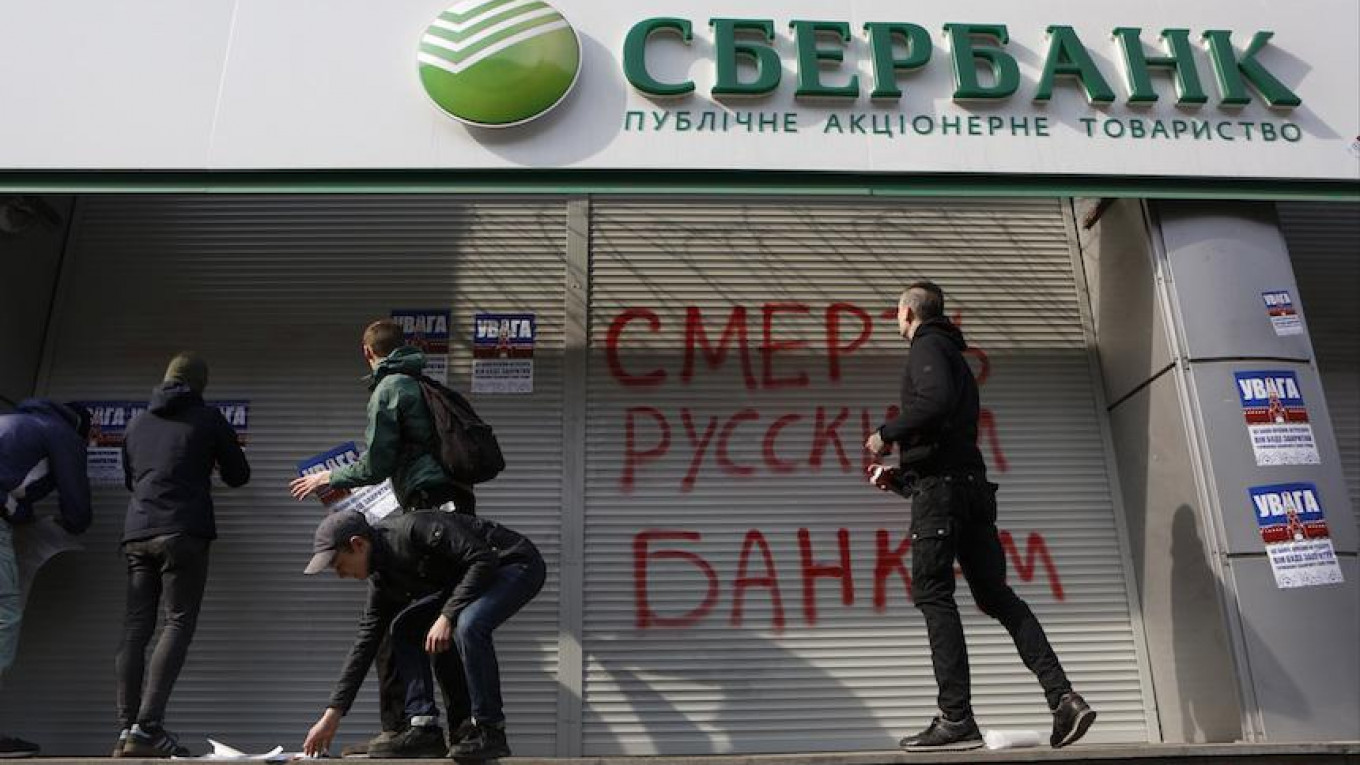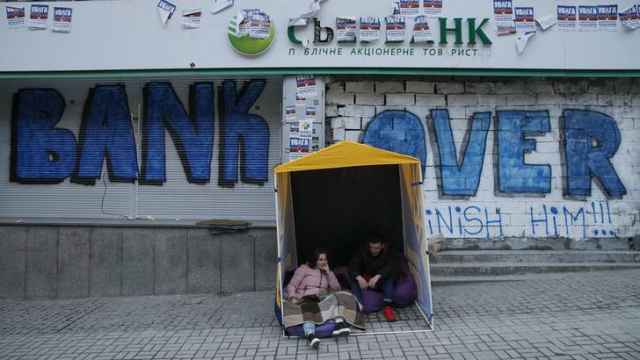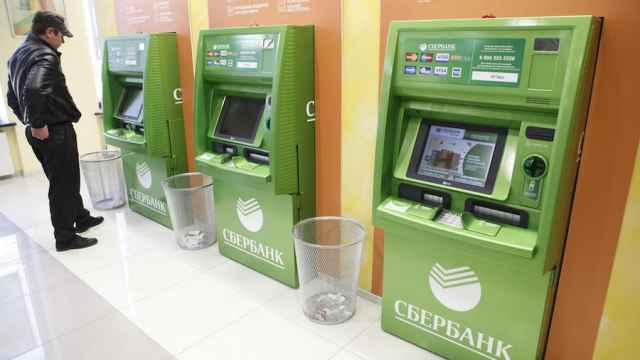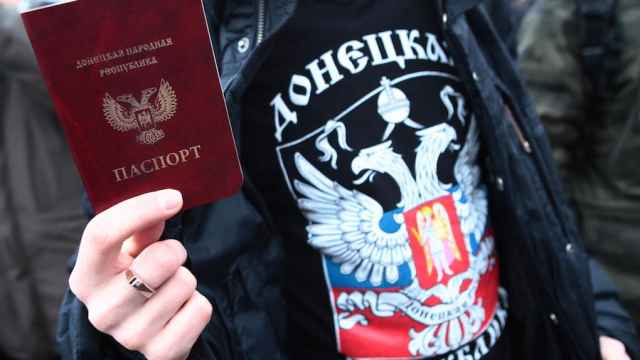Russia’s largest state-owned bank is set to sell its Ukrainian subsidiary weeks after being hit with sanctions by the Ukrainian government in Kiev.
The sale was made to a consortium backed by Said Gutseriev, son of Russian oligarch Mikhail Gutseriyev, and Grigoriy Guselnikov, owner of Latvia’s commercial Norvik Bank. Both men are also British citizens.
While the value of the sale is unknown, estimates have valued Sberbank Ukraine at between $450 million and $680 million. Gutseriev, a former employee at Glencore, will be the majority shareholder, controlling 55 percent of the company through a Belarusian firm. Guselnikov will acquire 45 percent of the company through Norvik Bank.
Guselnikov had previously expressed an interest in buying the company but had been unable to strike a deal, unnamed sources told Russia’s Kommersant newspaper on Tuesday.
In a statement on the Norvik Bank website, Guselnikov praised Sberbank Ukraine’s “excellent infrastructure. He pledged to build the bank “on European principles of quality, transparency and accessibility.”
"We support Ukraine's choice to be European and we believe that our work will help the future economic growth of the country," he said.
Guselnikov also announced that Norvik Bank planned to reduce its presence in the Russian banking market in a bid to boost the efficiency of investments and eliminate “political risks.”
Ukrainian President Petro Poroshenko placed sanctions on five Russian state-owned banks operating in Ukraine, including Sberbank, on March 16.
Sberbank, as well as VTB, BM Bank, Prominvestbank and VS Bank, were blocked from transferring funds to their subsidiary or parent companies outside of Ukraine for a 12-month period.
The sanctions were linked to Sberbank's decision to begin accepting documents issued from Ukraine's breakaway republics in Donetsk and Luhansk.
Sberbank had previously been forced to limit cash payments from Ukrainian ATMs following protests from nationalist activists across Ukraine. The protesters vandalized cash machines across the country, and attempted to barricade Sberbank’s central headquarters in Kiev with bricks and mortar.
With 150 branches across the region, Sberbank Ukraine is among the country’s seven largest banks, with assets worth $1.7 billion, according to the National Bank of Ukraine (NBU).
The company serves more than 1 million private clients and more than 36,000 business and corporate clients.
A Message from The Moscow Times:
Dear readers,
We are facing unprecedented challenges. Russia's Prosecutor General's Office has designated The Moscow Times as an "undesirable" organization, criminalizing our work and putting our staff at risk of prosecution. This follows our earlier unjust labeling as a "foreign agent."
These actions are direct attempts to silence independent journalism in Russia. The authorities claim our work "discredits the decisions of the Russian leadership." We see things differently: we strive to provide accurate, unbiased reporting on Russia.
We, the journalists of The Moscow Times, refuse to be silenced. But to continue our work, we need your help.
Your support, no matter how small, makes a world of difference. If you can, please support us monthly starting from just $2. It's quick to set up, and every contribution makes a significant impact.
By supporting The Moscow Times, you're defending open, independent journalism in the face of repression. Thank you for standing with us.
Remind me later.







